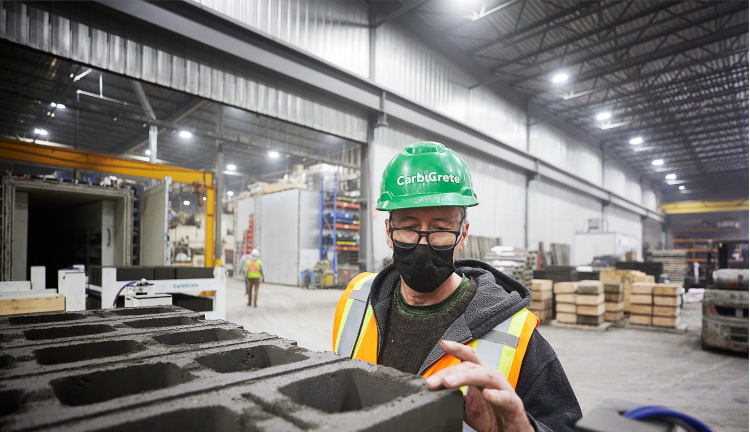
When if comes to setting a global example for sustainability initiatives, Canadian cities are being recognized for top performance. In an interview with Saint-Gobain’s Constructing a Sustainable Future magazine, George Benson, the Senior Manager for Economic Transformation at the Vancouver Economic Commission (VEC) discussed the how Vancouver became an exemplary sustainable city, and how its example can be replicated around the world. Benson explained that a major factor contributing to Vancouver’s sustainable reputation is the province’s general attitude of connection to nature and political vision. The first North American carbon tax was established in British Columbia, reflecting this propensity for sustainability.
In 2010, the Vancouver city government enacted the Greenest City 2020 Action Plan (GCAP). This decade-long initiative to make Vancouver the greenest city in the world in which to live, work, and play is what Benson credits as the driving force of novel sustainability. Benson notes in particular the ultimate outcomes “associated with the plan’s economic aims, which looked to double the number of green jobs. With an 87% rise within a decade, the results exceeded our expectations.”
Benson also noted the GCAP’s aim of increasing the number of companies involved in sustainable development—a number which rose from 5% to over 20%: “These eco-friendlier companies are largely found in building construction, with the goal of reducing their carbon footprint and energy consumption. Their efforts include sustainably managing materials, promoting recycling, urban agriculture, etc.” Benson mentioned the recently developed Social Cost of Carbon metric, which is greatly affecting how project managers are looking at embodied carbon in their newest projects.
Ultimately, the exciting nature of sustainable construction is what keeps Benson hopeful for further innovation in Vancouver: “we have observed an 81% reduction in emissions, so we can confirm that all the buildings built in the future will be carbon neutral.” The general social attitude toward sustainability is key to maintaining effective progress. As Benson states, “innovation teamed with everyday behaviors forms the basis of the green economy.”
Vancouver isn’t the only Canadian city setting an example for sustainable development. Boardroom Magazine also highlighted Halifax and Montreal as flagship cities in Canadian cleantech infrastructure. The article mentions Canada’s established presence on the 2022 Global Cleantech 100 list of the world’s most innovative green technology companies—in 2023, this strong Canadian representation continued, with 12 Canadian companies making the list.
The article notes that cleantech companies are flocking to these Canadian cities. In Vancouver, there are more than 200 cleantech companies, employing over 3,500 people. Meanwhile, Halifax is “one of sixteen Canadian destinations to participate in the GDS Index as part of the Canadian Business Events Sustainability Plan.”
Boardroom Magazine makes particular note of the academic ecosystem that contributes to the sustainable economy in Montreal: “The city is home to phenomenal research institutes and organizations – like the McGill Centre for Innovation in Storage and Conversion of Energy – which are focused specifically on innovation, and cutting-edge companies like CarbiCrete. This carbon removal technology company aims to contribute to the reduction of greenhouse gas emissions by replacing cement as a binding ingredient in precast concrete products, injecting CO2 into the fresh concrete to provide strength instead, while permanently sequestering CO2.”
As a Montreal-based startup, CarbiCrete is one of the Canadian leaders leading the way in clean technology. Having been named to the Global Cleantech 100 twice, the innovative CarbiCrete process is working to decarbonize the heavily pollutant construction sector. Concrete is the most-used manmade material on Earth; but the production of its main ingredient, cement, is responsible for nearly 8% of global emissions each year. This is because cement is produced in a fossil fuel-burning kiln.
The CarbiCrete process replaces cement with steel slag, an industrial by-product, and cures this steel slag concrete with CO2, turning the end product into a net carbon sink. Together with other trailblazing Canadian cities like Halifax and Vancouver, Montreal gives a home to sustainable cleantech companies like CarbiCrete that are changing the game for global innovation.



